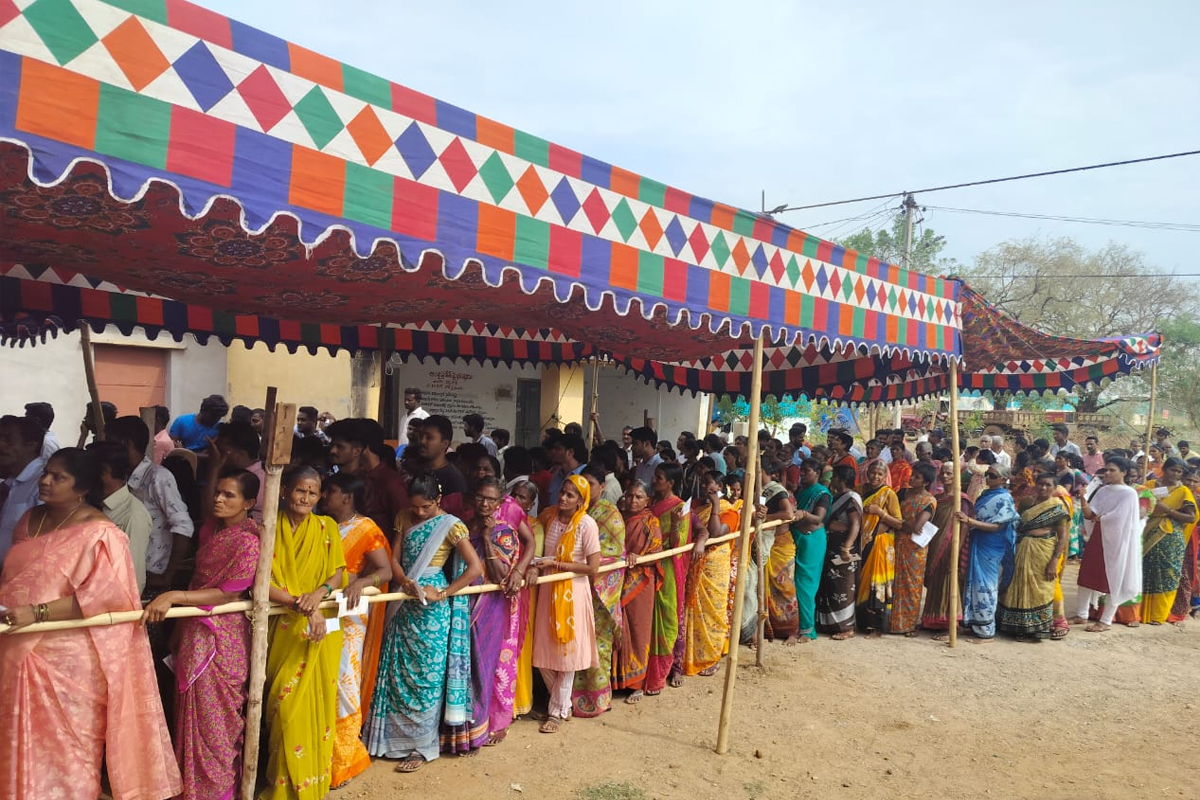Manipulated and Betrayed: How Andhra Pradesh Used Citizen Data to Deny Aid and Control Votes

Yesterday at 02:09 PM
In a chilling exposé of state-level manipulation, the Andhra Pradesh government is alleged to have misused citizens' data to deny welfare benefits and influence electoral outcomes.
This sophisticated and calculated strategy has raised alarm bells over the abuse of technology in democratic processes.
Data Misuse in Indian Elections
The controversy came to light when Meda Ramana, head of the Garapadu village council, was approached by villagers who claimed they had been unjustly excluded from government welfare schemes.
The affected individuals, predominantly women from Dalit, Indigenous, and minority communities, reported that their annual benefits, which ranged from £95 (10,000 rupees) to £1,144 (120,000 rupees), were abruptly terminated.
Initially dismissed as a data entry error, Ramana's inquiries revealed a more sinister pattern.
Despite her insistence that these villagers were residents, their appeals were ignored, and higher authorities' orders to investigate were disregarded. Suspicions grew that these exclusions were politically motivated.
Weaponising Welfare to Influence Votes
Andhra Pradesh became a battleground during the 2024 regional elections, coinciding with India's national polls. The election saw fierce competition between the ruling YSR Congress Party (YSRCP) and the Telugu Desam Party (TDP).
While the TDP ultimately won, the outgoing YSRCP government reportedly leveraged welfare benefits to manipulate voter allegiance.
According to reports, the YSRCP used data collected by government-appointed volunteers to create voter profiles, predicting political leanings.
Those suspected of supporting the opposition were systematically excluded from welfare schemes. This strategy weaponised welfare delivery, turning it into a tool for voter coercion.
A System Designed for Control
Andhra Pradesh is experiencing a one-sided election with a strong anti-incumbency vibe against Jagan Reddy's governance.
— TeluguBulletin.com (@TeluguBulletin) May 6, 2024
In just 5 years, it's generated a 25-year level of dissatisfaction.
Rural to urban, the shift is evident. Recent outcomes indicate YSRCP's downfall, making… pic.twitter.com/JHDnYFqTCW
The state government had replaced the traditional welfare distribution model, managed by elected village councils, with a network of approximately 260,000 paid volunteers.
Each volunteer was responsible for 50 households, earning a monthly salary of £48 (5,000 rupees).
Armed with advanced technology, these volunteers had unprecedented access to citizens' personal data, which they allegedly used to categorise voters by their political preferences.
This data-driven approach was key to identifying and targeting opposition supporters. Ramana and her husband, a TDP worker, reviewed the exclusion lists in their village and found that all the affected families were TDP supporters.
'The village volunteers were deliberately targeting our supporters to pressure them into shifting allegiance to the YSRCP,' Ramana's husband claimed.
Court Intervention and Vindication
In 2022, 27 women from Garapadu filed a case in the state's high court, accusing government volunteers of terminating their benefits for political reasons.
The court ruled in favour of the women, ordering the reinstatement of their welfare entitlements and condemning the volunteers' actions as illegal.
This case was not an isolated incident. Over 100 similar complaints were filed across the state, alleging that opposition supporters were systematically excluded from welfare schemes.
According to lawyer G Arun Showri, these complaints revealed a clear pattern of political profiling and voter manipulation.
Erosion of Democracy
The investigation revealed that the misuse of welfare schemes was just one part of a broader strategy to influence elections.
Volunteers reportedly used personal data to monitor and categorise voters, leveraging government resources to suppress opposition support. This erosion of electoral integrity highlights the dangerous intersection of technology, governance, and political ambition.
The ramifications of this scandal extend far beyond Andhra Pradesh. By exploiting personal data to control votes, the YSRCP's actions have exposed vulnerabilities in India's democratic framework, underscoring the urgent need for stricter safeguards against the misuse of state power.
